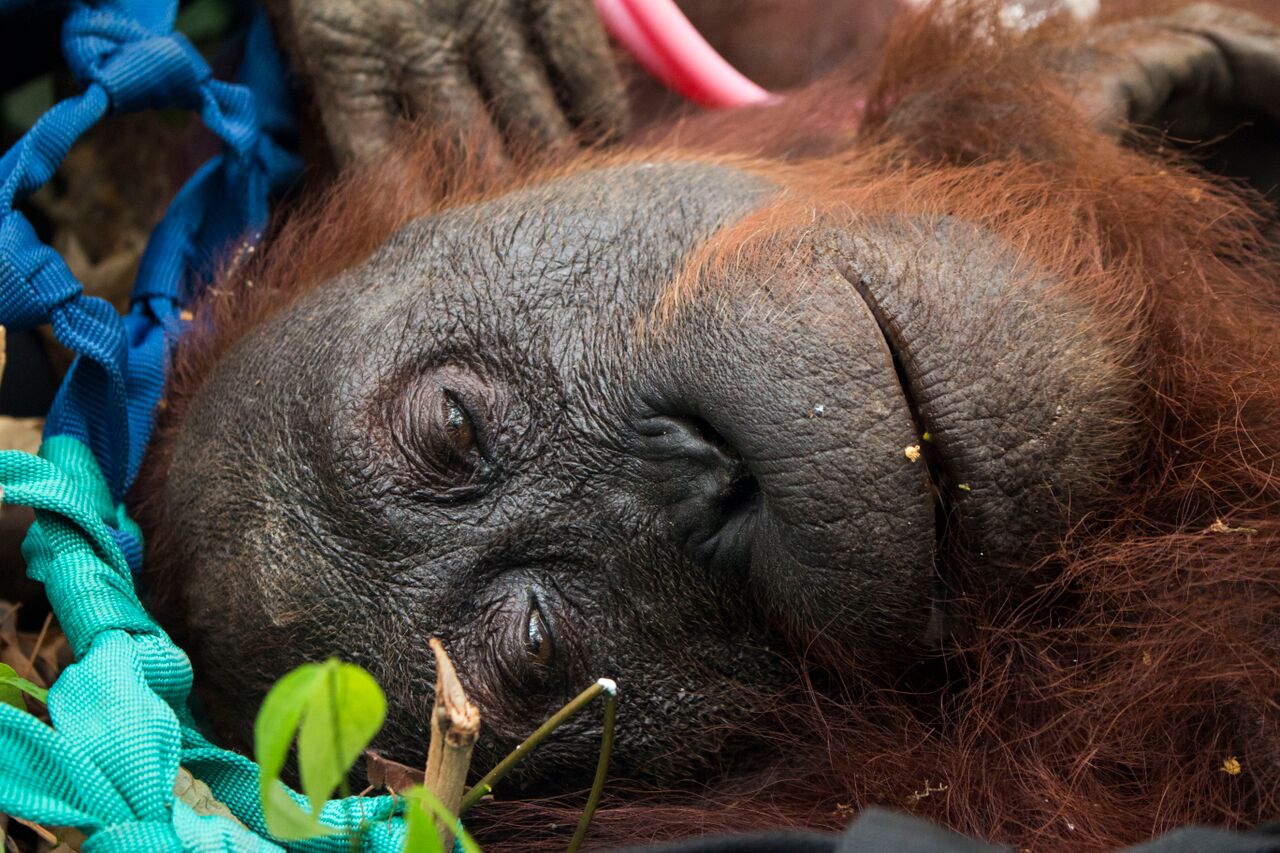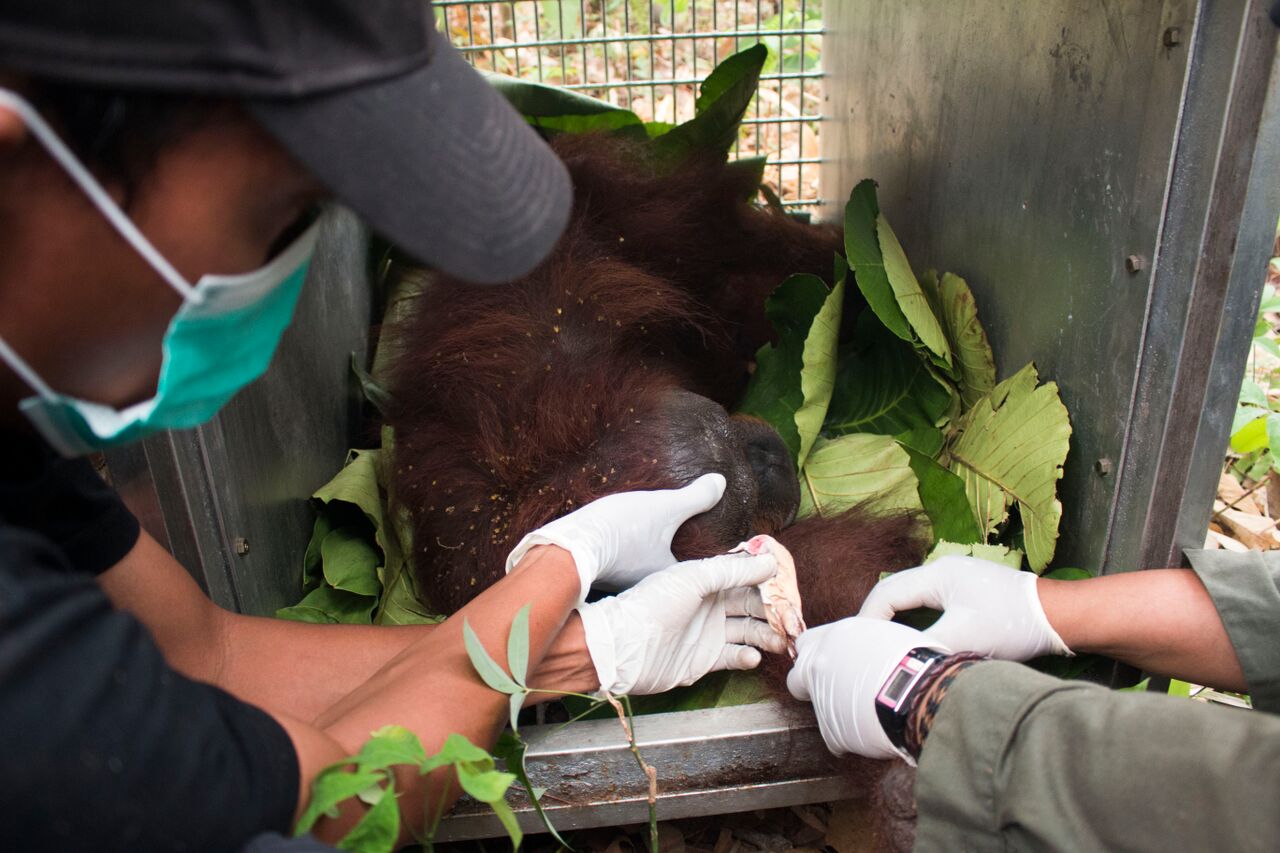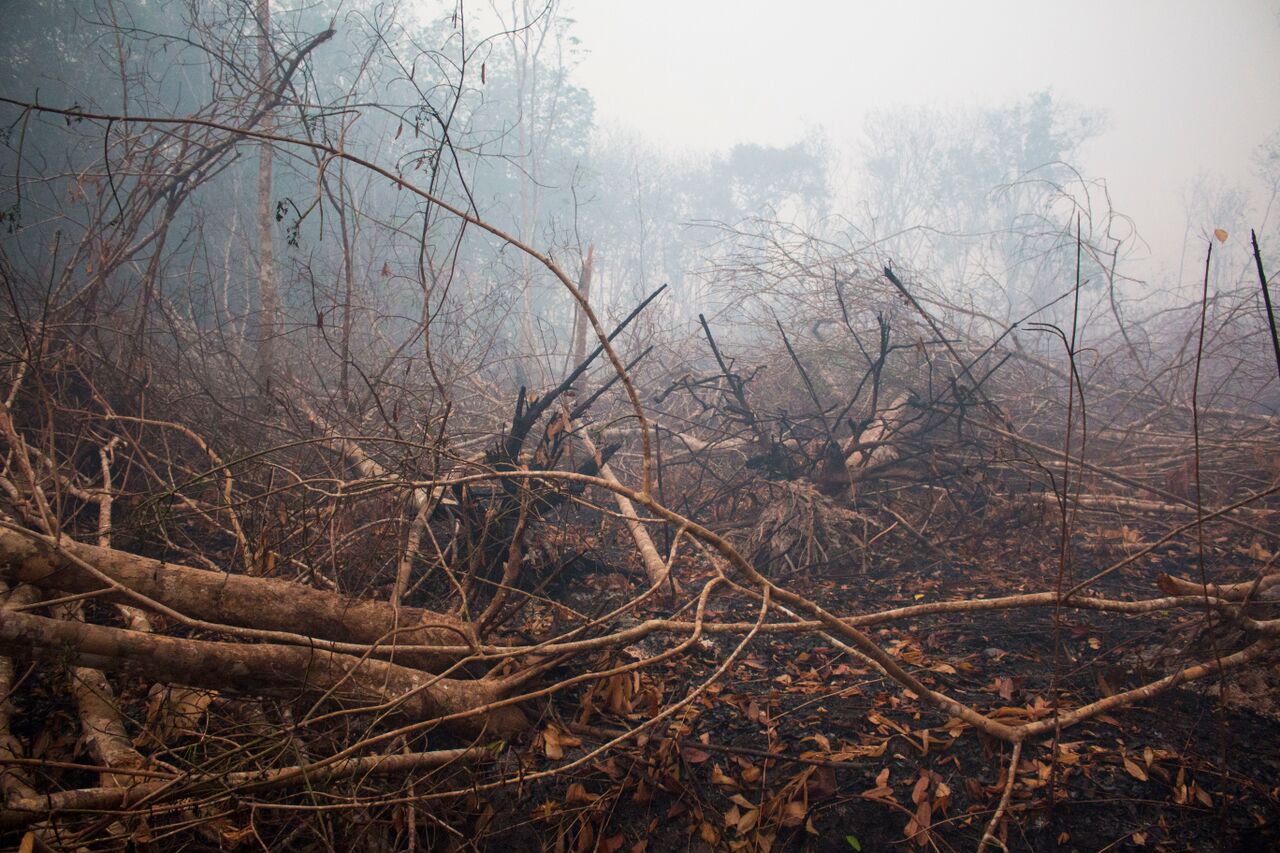Thousands of Orangutans Threatened by Indonesia Wildfires
Raging fire is destroying the Great Apes' habitat.
— -- A species of the Great Apes is among the biggest casualties of the latest fires ravaging several parts of Indonesia and the Southeast Asian island of Borneo.
Thousands of orangutans, who share 97 percent of their DNA with humans, have been caught in what scientists warn could be one of the biggest environmental disasters in the country since the devastating fires of 1997.
More than 63 fires reported in the region in the past month have contributed to the destruction of the orangutans’ habitat, which has been devastated in the past 20 years.
An area of rain forest the size of 300 soccer fields is destroyed every hour, said Lis Key of International Animal Rescue, a United Kingdom-based non-governmental organization working to rescue animals in the region.
“It’s happening at an absolutely breathtaking rate,” Key said. “If this goes on, this could have a serious impact in extinction and bring it closer.”


About 40,000 orangutans remain in Borneo, plus 10,000 more on the island of Sumatra in Indonesia. Dense smoke, burning fire and lack of food have not only caused malnourishment, burns and respiratory diseases, but it has also pushed the mammals closer to human settlements, where they face the danger of being killed or caged by locals.
Richard Zimmerman, executive director of Orangutan Outreach, a conservation group that is funding a firefighter program for people in the region, said the consequences of the fires are staggering.
“There are the homes of the biggest remaining populations of orangutans,” Zimmerman told ABC News. “The estimate is about 3,000 orangutans are lost each year; every loss is critical.”

The main cause of the wildires through the years: the illegal use of fire to clear land for development in so-called slash-and-burn agriculture and to benefit the palm oil industry. The warmer temperatures and drought brought by El Nino only make the situation worse.
Many rescued orangutans are babies because their mothers have either died in the fires, or been captured and killed by locals, Key said.
Tom Mills of Los Angeles-based Orangutan Conservancy, a non-governmental organization supporting programs in Indonesia, said the effects of the fires are devastating.
“The peatland where they live is so carbon-rich that it burns forever; once it starts going up, it just doesn’t stop,” Mills told ABC News.
“Orangutans are a keystone species; if they disappear, thousands of other species disappear.”




